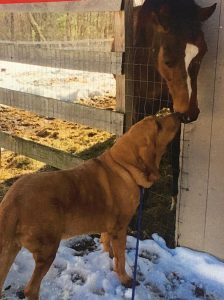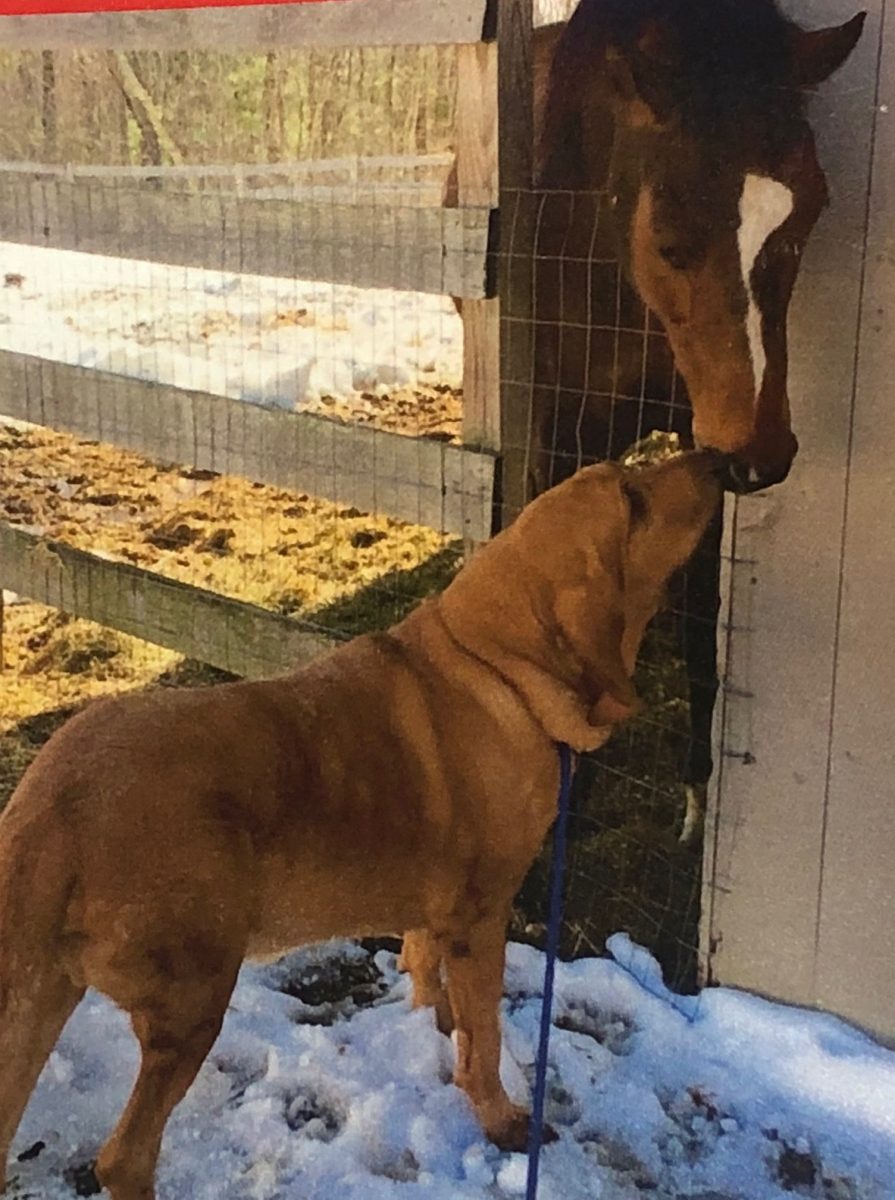WESTFIELD – With temperatures consistently below 20 degrees for the last week, it’s not recommended for people to stay outside for too long, and the same goes for your household pets.
The Westfield News spoke with some local pet industry experts to offer tips about protecting pets during this recent blast of arctic air.
According to Dr. Jo-Anne Leja, veterinarian of her own small veterinary clinic, Pet House Calls in Westfield, hypothermia can be a big risk for pets when temperatures drop below freezing.
“Dogs with heavy fur coats can safely go outdoors for short periods to perform their “bathroom duties” but short haired dogs like Chihuahuas or Greyhounds should have a warm coat when venturing outside even for brief periods in freezing weather,” said Leja.
Besides the cold weather, Leja also mentioned that the salt and chemicals that are used to treat the roadways and sidewalks during snow storms can irritate animal’s paws, especially dogs. Leja then added that antifreeze can be deadly for pets at this time of the year as a few spilled drops on the ground can be very intriguing for pets to taste. Leja noted that depending on the weight or health of a dog or a cat, a couple of licks can be enough to cause death.
“The active ingredient in most antifreeze, ethylene glycol, can cause kidney failure,” said Leja. “By the time owners notice symptoms, the damage is done. Immediate emergency hospitalization is necessary to try to save the poisoned dog or cat.”
Leja’s advice with antifreeze is to thoroughly clean up the antifreeze spills or drips by using an adsorbant and putting the antifreeze in a place away from pets.

Customers of Westfield Feed are seen interacting with one another outside this winter. (Photo courtesy of Westfield Feed)
While Leja provided concerns and tips from the angle of a veterinarian, Linda Williams of Westfield Feed addressed the products available to protect pets from the harsh winter.
Williams noted that hay can be used as insulation in dog houses, and dog boots and paw guard are available to protect your pet’s feet. Paw guards help decrease the damage from snow and salt which pets may step on when being outside.
Safety Pet is a product that Williams said is an ice-melting product that can be put on sidewalks and driveways that is not harmful to pets.
“It doesn’t eat away at their paws,” said Williams.
Williams also added that bag balm ointment applied to exposed paw pads can prevent pets from getting sores while blinking lights should be worn to be visible when people are walking their dogs at night.
Williams mentioned that having water available is important to keep pets hydrated and said that electric water bowls are an option to keep water from freezing since water left outside can freeze in less than an hour on very cold days.
“It’s really important they have water all the time,” said Williams.
The Mass.gov website offers a number of winter safety tips for pets.






